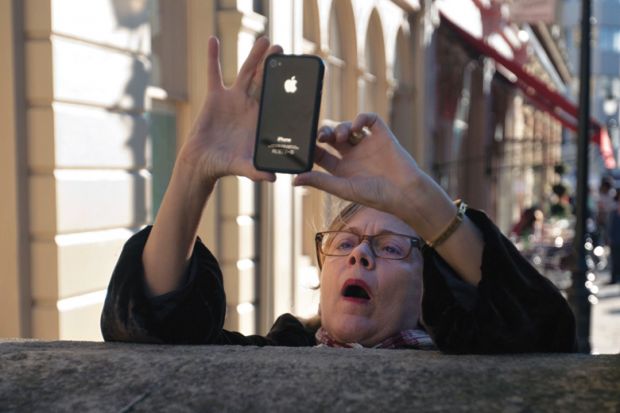A university’s status has little bearing on the networks it forms with other institutions, according to a new study examining how institutions interact on Twitter.
The paper – “Following the leader? Network models of ‘world-class’ universities on Twitter” – found that “more substantive issues”, such as the geographical location of an institution, existing ties between universities and common interests, played a greater role in the online relationships they formed.
The research was based on an analysis of the Twitter accounts of 211 universities, with “networks” defined as universities that follow one another, directly mention one another, or use the same hashtag. Institutions were given a “prestige score” based on their average score across four global league tables, including the Times Higher Education World University Rankings.
Robin Shields, senior lecturer in higher education management at the University of Bath and author of the study, said that before conducting the research he expected “status” to have a “very big influence” over online university networks, but the findings show that rankings “don’t matter as much as we might have thought”.
“If [institutions] are looking at partnerships and communicating with different universities, it might be good to forget some of these hang-ups we have about rankings,” he told Times Higher Education. “That would be the main takeaway [message] for higher education institutions.”
He said this finding also questions “the logic of the ‘world-class’ category” and suggests it is “something which is talked into being rather than something that exists externally”.
“It is a label which is appropriated by institutions to try to devise some kind of status but they’re not necessarily different from other universities. And depending on how quality is defined, different types of institutions could be considered world-class,” he said.
He added that the influence of geographical location on universities’ interaction on Twitter showed that “social media networks tend to reproduce borders as much as they remove them”.
“We hear a lot about how higher education is a borderless enterprise now. You’ve got networks of research collaborations, even teaching that spans the globe and things like the Observatory on Borderless Higher Education,” he said.
“But it may be possible to overstate the global dimensions of higher education. It was interesting to see that even on social media, which you would think is quite borderless, universities tend to interact more with those that are closer to them.”
Register to continue
Why register?
- Registration is free and only takes a moment
- Once registered, you can read 3 articles a month
- Sign up for our newsletter
Subscribe
Or subscribe for unlimited access to:
- Unlimited access to news, views, insights & reviews
- Digital editions
- Digital access to THE’s university and college rankings analysis
Already registered or a current subscriber? Login







